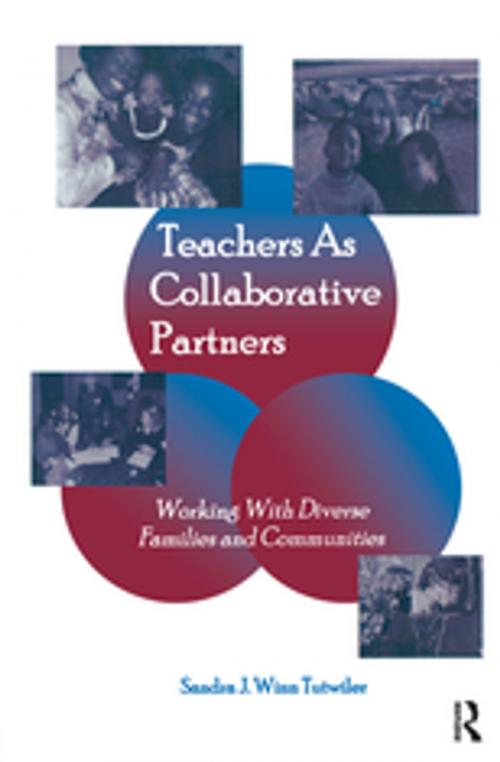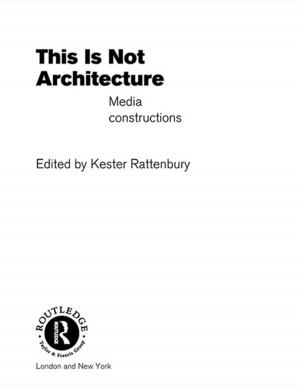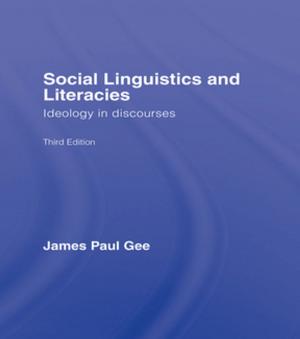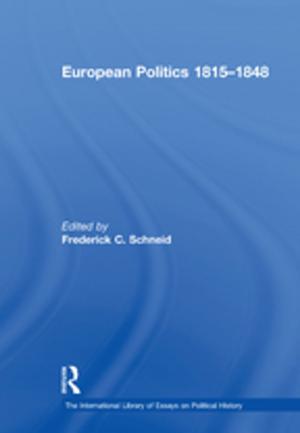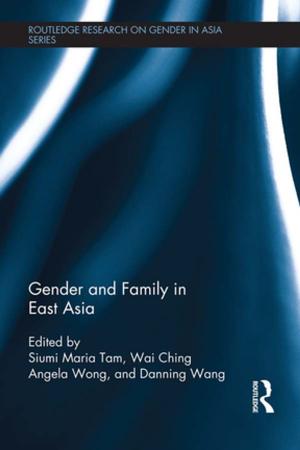Teachers as Collaborative Partners
Working With Diverse Families and Communities
Nonfiction, Reference & Language, Education & Teaching| Author: | Sandra J. Winn Tutwiler | ISBN: | 9781351225601 |
| Publisher: | Taylor and Francis | Publication: | October 3, 2017 |
| Imprint: | Routledge | Language: | English |
| Author: | Sandra J. Winn Tutwiler |
| ISBN: | 9781351225601 |
| Publisher: | Taylor and Francis |
| Publication: | October 3, 2017 |
| Imprint: | Routledge |
| Language: | English |
Teachers as Collaborative Partners assists future and inservice teachers in developing a research-based framework for understanding the dynamics of school, family, and community relations. It provides foundational knowledge important for understanding families and communities, while exploring conditions that influence family-school-community interactions. The text is designed to engage the critical reflective capability of teachers in ways that will support their ability to work with diverse families in a variety of teaching contexts.Part I focuses first on the social, cultural, and historical roots of the family, with specific attention to the evolution of public schools and the family as interdependent social institutions, and then on the multiple ways families conceive of and conduct family life, as well as the impact of community attributes on the work of families and schools.Part II explores the relationship among families, communities, and schools within social, political, legal, and educational contexts.Part III addresses educational practices that respond to authentic partnerships with families and communities.The goals of the text are supported by pedagogical tools that provide opportunities for readers to make connections between information in each chapter and realistic family-community-school situations.Case Studies are embedded in most chapters. These serve to complement research-based with authentic and personally articulated experiences of parents. Teachers then have the opportunity to make connections between theory and lived experiences.Each chapter includes Inquiry and Reflection questions and Guided Observations to engage readers in case study analysis, situated learning exercises, and classroom and community observations and reflections.The Family-Community-School Profile introduced in this text as a teacher-generated summary allows for evaluation of
Teachers as Collaborative Partners assists future and inservice teachers in developing a research-based framework for understanding the dynamics of school, family, and community relations. It provides foundational knowledge important for understanding families and communities, while exploring conditions that influence family-school-community interactions. The text is designed to engage the critical reflective capability of teachers in ways that will support their ability to work with diverse families in a variety of teaching contexts.Part I focuses first on the social, cultural, and historical roots of the family, with specific attention to the evolution of public schools and the family as interdependent social institutions, and then on the multiple ways families conceive of and conduct family life, as well as the impact of community attributes on the work of families and schools.Part II explores the relationship among families, communities, and schools within social, political, legal, and educational contexts.Part III addresses educational practices that respond to authentic partnerships with families and communities.The goals of the text are supported by pedagogical tools that provide opportunities for readers to make connections between information in each chapter and realistic family-community-school situations.Case Studies are embedded in most chapters. These serve to complement research-based with authentic and personally articulated experiences of parents. Teachers then have the opportunity to make connections between theory and lived experiences.Each chapter includes Inquiry and Reflection questions and Guided Observations to engage readers in case study analysis, situated learning exercises, and classroom and community observations and reflections.The Family-Community-School Profile introduced in this text as a teacher-generated summary allows for evaluation of
